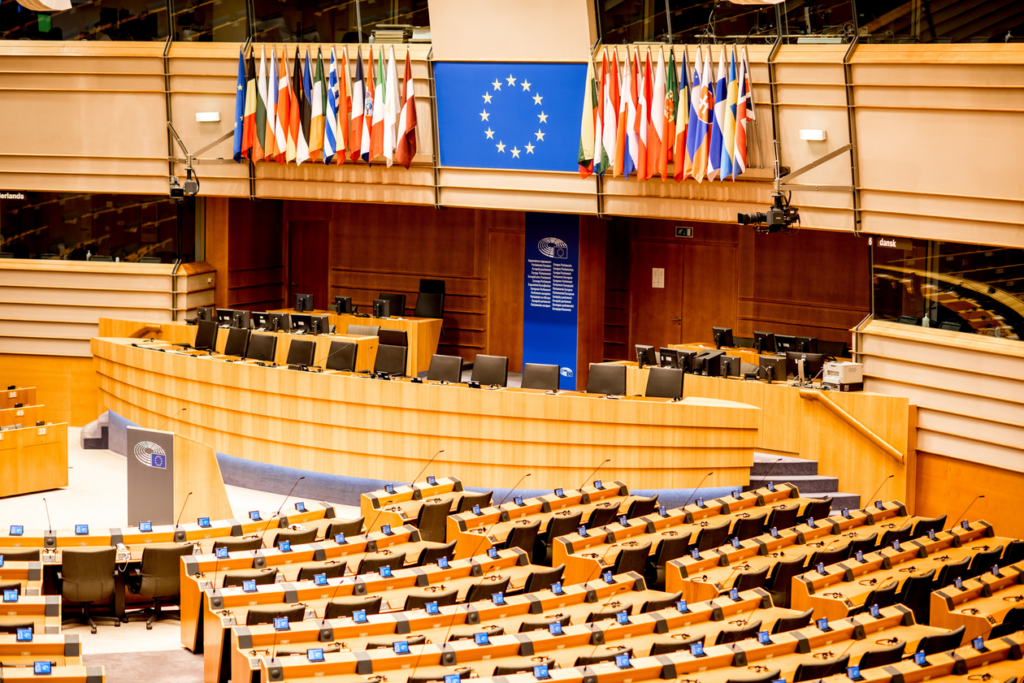European industry faces tough PFAS and F-gas restrictions
- PostedPublished 28 July 2023
PFAS proposals and F-gas revisions in the European Union threaten to cause serious challenges, and industry groups are urging their members to promptly alert legislators to these issues.
Current drafts of the European F-gas regulation amendment and the suggested PFAS revisions pose a threat to the existence of many air-conditioning refrigeration systems, including those using new refrigerants and technologies designed to help fight climate change.

If adopted, the restrictions could limit the use of fluorinated refrigerants in air-conditioning, chillers and heat pump systems, rendering them unobtainable for use in new or old equipment.
The EU’s PFAS proposals
The European Chemicals Agency (ECHA) announced its limitation proposal on per- and polyfluoroalkyl substances (PFAS) on February 7, 2023. The greatest substance ban project in European history lays out the process by which the EU will prohibit the import and manufacture of a family of more than 10,000 persistent chemicals after years of debate.
Known as ‘forever chemicals’, PFAS are found in many everyday products, including refrigerants. They accumulate within our bodies and cannot be broken down.
The European Commission has said that “if their releases are not minimised, people, plants, and animals will be increasingly exposed, and without a restriction, such levels will be reached that have negative effects on people’s health and the environment”.
“Authorities estimate that around 4.4 million tonnes of PFAS would end up in the environment over the next 30 years unless action is taken.”
PFAS ban
A ban on PFAS was initially proposed in February 2023 by EU members Germany, the Netherlands, Norway, Sweden, and Denmark. It affects numerous HFC and HFO refrigerants, including R1234yf, which is currently standardised for car air-conditioning, and R1234ze, used in a number of lower Global Warming Potential (GWP) applications such as the latest chillers.
The European Chemical Agency (ECHA) is currently carrying out a six-month consultation on the proposals brought forward by the five European member states.
Peter van der Zandt, ECHA’s Director for Risk Assessment, said: “This landmark proposal by the five authorities supports the ambitions of the EU’s Chemicals Strategy and the Zero Pollution action plan. Now, our scientific committees will start their evaluation and opinion forming. While the evaluation of such a broad proposal with thousands of substances, and many uses, will be challenging, we are ready.”
We can expect more on the PFAS proposals this autumn, but in the meantime, environmentalists and chemical manufacturers continue to disagree about which refrigerants can be considered PFAS products and how much environmental harm they may cause.
Revision of the EU’s F-gas legislative framework
Members of the Environment, Public Health, and Food Safety (ENVI) committee also adopted their position on the revision of the EU’s legislative framework regarding fluorinated gases (F-gases) on March 1, 2023, directing new refrigeration, air-conditioning, and heat pump applications away from fluorinated refrigerants in spite of industry opposition that a phasedown at such speed is unrealistic. This stance calls for a ban on F-gas-containing equipment, maybe as early as 2026, threatening many refrigeration systems with extinction.
Industry reaction
“MEPs should not slam down both the accelerator and the brake pedals at once”, commented Thomas Nowak, Secretary General of the European Heat Pump Association (EHPA).
“The EU needs to decarbonise and get off fossil fuels in heating with top priority. It has recognised heat pumps as the solution – so, the road ahead needs to be cleared of obstacles, not blocked off. The industry is committed to the safe handling of refrigerants and the transition to refrigerants with a low global warming potential, with the aim of reaching zero emissions through heat pump technology by 2050.”
The possible consequences of the two regulations would mean that recently installed F-gas systems, that currently meet all regulations, may have their refrigerants withdrawn. This means that should a leak occur after 2029 (once recycled yet banned refrigerants can no longer be used), the system would be condemned and permanently out of operation. This gives it a possible service life of just 6 years, rather than the usual 20.
This scenario applies to hundreds of thousands of appliances used in multiple industries, including automotive, where the use of flammable refrigerant alternatives in environmental simulation chambers is not possible, and CO2 is not suitable for temperatures below -50°C.

F-gas vote
On March 30, the F-gas regulation vote, led by Bas Eickhout, took place in parliament. A decisive majority of the members of the European Parliament agreed to strengthen the F-Gas legislation, opting for a faster phasedown. The ideas received 426 votes in support and 109 votes against from MEPs. There were 52 abstentions.
Phase-down requirements
Parliament decided that by 2024, only 23.6 per cent of the amount of F-gas used in 2015 will be allowed on the market. On a sloping trajectory, this will fall to 10 per cent by 2029 before steadily approaching zero by 2050.
MEPs rejected the claims that more time was required for the industry to shift to lower-GWP options in spite of last-ditch lobbying by business groups, although they did agree to a small change that would postpone the deadline for the ban on new heat pumps containing HFCs until January 1, 2028, as well as passing a rule to relax repairing existing F-gas systems such as air-conditioners.
F-gas vote reaction
The European FluoroCarbons Technical Committee (EFCTC), a group that represents F-gas manufacturers, said: “Low GWP fluorinated refrigerants are part of the long-term solution for the transition away from higher GWP HFCs, whilst maintaining energy efficiency and safety,” They went on to say: “The transition to non-fluorinated industrially produced alternatives may result in risks primarily in the area of safety in many circumstances, such as high-density buildings.”
If the low GWP HFCs are not included in the final compromise document, the EFCTC forecasts major issues for the operation of refrigeration and air-conditioning equipment that will directly affect the EU’s decarbonisation goals.
The European Heat Pump Association said: “The new timeline, if it became law, would mean a ban on F-gases from as early as 2026 for some heat pump types, slamming on the brakes for heat pump deployment and undermining the EU’s climate and energy security ambitions.”
According to the EHPA, the industry has been steadily phasing out F-gases because of their contribution to global warming and replacing them with non-fluorinated and low-GWP refrigerants. It said: “Ramping up the timeline for phasing out F-gases at the same time as ramping up the targets for heat pumps under REPowerEU is incompatible.”

F-gas agreement date
The 27 EU nations have not yet agreed on a position, which would open the door to final negotiations between the Council and the Parliament. This has given lobbyists further opportunity, whose efforts to influence the law have been unprecedented due to the fact that this ruling affects so many industries in so many ways. A final agreement is anticipated later this year.
Legislation timeline
When restricting the manufacture and distribution of a chemical, the ECHA follows a three-part process, with phase one being the creation and filing of the restriction proposal.
The following step is divided into two parts: committee consultation and review, and the formulation of opinions through meetings of various ECHA committees, including its Socio-Economic Analysis Committee (SEAC) and Risk Assessment Committee (RAC).
The SEAC will investigate the potential economic effects of the proposed restriction, while the RAC will look at the proposal’s potential efficacy and necessity from an environmental and public health perspective.
Following the ECHA’s adoption of the committee’s recommendations, the European Commission will receive the comments and create a legislative proposal for member states to consider before any restrictions are put into place.
- CategoriesIn Latest News
- TagsEU, Europe, F-Gas, HFC phase down, HFC phasedown, HFCs, PFAS


